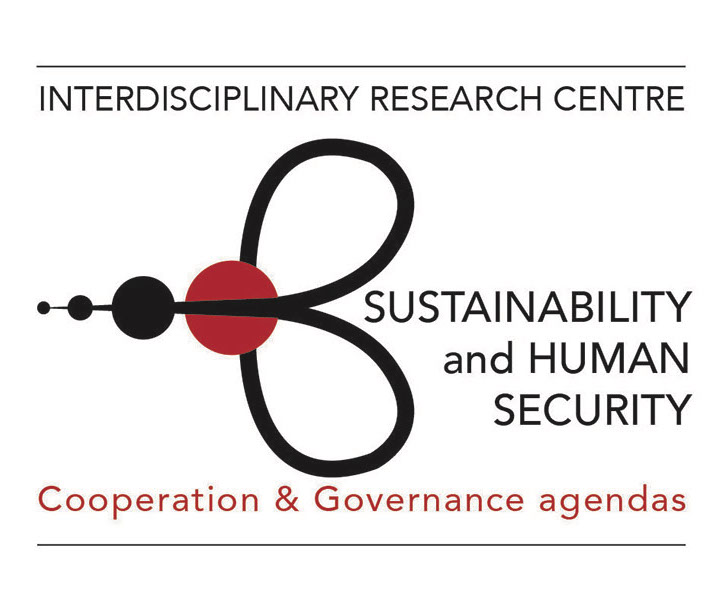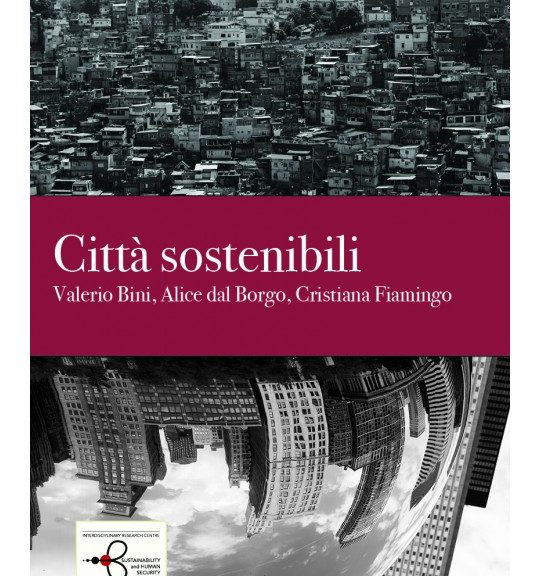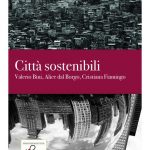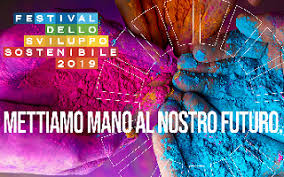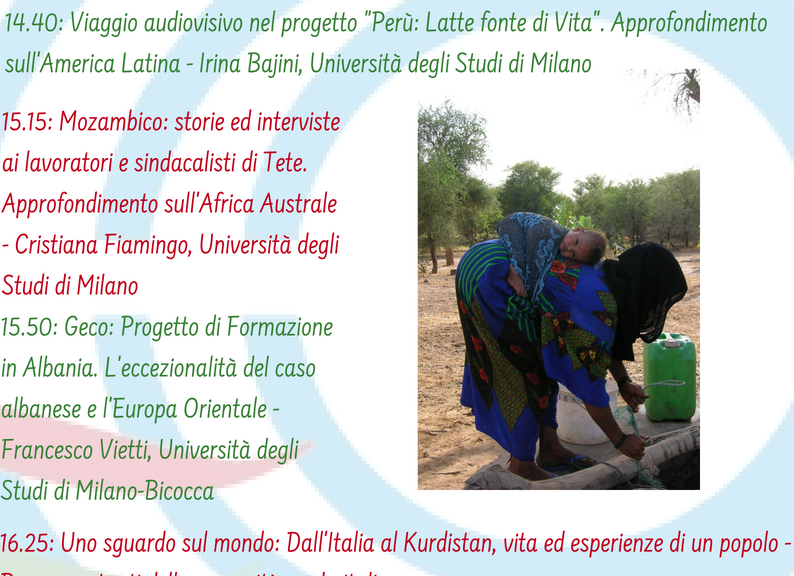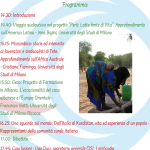Dallo Special Rapporteur delle Nazioni Unite, una dichiarazione comune degli esperti indipendenti dello Human Rights Council in merito al cambiamento climatico
Climate Change and Human Rights 6 December 2018 – As independent experts of the UN Human Rights Council*, we call on States to fully integrate human rights standards and principles in the rules for implementing the Paris Agreement on climate change (the Paris Rulebook). In a significant breakthrough, in 2015, Parties to the Paris Agreement recognized the need to integrate their human rights obligations and their efforts to address climate change, pledging to respect and protect human rights in all climate actions. Now, as the Parties meet in Katowice, Poland for the 24th Conference of the Parties to the UN Framework Convention on Climate Change (3 to 14 December 2018), they must take the necessary steps to operationalize their human rights obligations as they finalize the Paris Rulebook.
6 December 2018 – As independent experts of the UN Human Rights Council*, we call on States to fully integrate human rights standards and principles in the rules for implementing the Paris Agreement on climate change (the Paris Rulebook). In a significant breakthrough, in 2015, Parties to the Paris Agreement recognized the need to integrate their human rights obligations and their efforts to address climate change, pledging to respect and protect human rights in all climate actions. Now, as the Parties meet in Katowice, Poland for the 24th Conference of the Parties to the UN Framework Convention on Climate Change (3 to 14 December 2018), they must take the necessary steps to operationalize their human rights obligations as they finalize the Paris Rulebook.
Climate change is one of today’s greatest threats to human rights, as illustrated in the recently released Special Report by the Intergovernmental Panel on Climate Change (IPCC)1, which describes the ways in which climate change is transforming life on earth and adversely impacting the lives and livelihoods of millions of people. The IPCC concluded that “rapid, far-reaching and unprecedented changes in all aspects of society” are needed to prevent catastrophic climate impacts. Unfortunately, the existing commitments of State Parties to the Paris Agreement—through their nationally determined contributions—put the world heading for 3°C of warming.
The impacts of climate change are already interfering with a wide range of human rights, including the rights to life, health, food, housing, water, development and freedom of movement – as massive population displacement is increasingly triggered, often in the form of forced displacement, which may lead to increased vulnerabilities to trafficking in persons – as well as the right to a healthy and sustainable environment. The responses taken to address climate change and its impacts (mitigation and adaptation measures) may also threaten the enjoyment of human rights. For example, when such measures are developed and implemented without the full and effective participation or consent of those concerned, they may result in human rights violations and/or unsustainable outcomes.
For these reasons, as human rights experts we urge States to rapidly deploy effective actions capable of achieving the 1.5°C target in the Paris Agreement. As we have stated previously, and as recognized in the Paris Agreement, States must ensure that all actions taken to address climate change are in full accordance with their human rights obligations2. Such obligations not only help to prevent or minimize harm but also “have the potential to inform and strengthen international and national policy making in the area of climate change, promoting policy coherence, legitimacy and sustainable outcomes3.”
As we look ahead to the 70th anniversary of the Universal Declaration of Human Rights on 10 December 2018, the Special Procedures mandate holders continue to lend support to all those involved in integrating human rights into climate actions. We further call on States:
- to commit to urgently increase their ambition, given the grave nature of the climate crisis and the pressing need for scaled-up mitigation efforts;
- to adopt without delay a comprehensive set of guidelines and modalities that ensures the effective implementation of the Paris Agreement. These should reflect States’ obligations under international human rights law, as acknowledged in the Paris Agreement, in particular the need for rights-based, participatory and gender-responsive climate action that promotes a just transition and food security for all. Parties must ensure that these principles are fully integrated into the guidelines and modalities for: nationally determined contributions, adaptation communications, the Enhanced Transparency Framework, and Article 6 mechanisms, among others;
- to operationalize the Local Communities and Indigenous Peoples Platform as a means to ensure that indigenous perspectives and knowledge are adequately considered in developing and implementing climate change policies and actions;
- to support the COP24 Presidency’s proposal for a Solidarity and Just Transition Silesia Declaration, which reaffirms the commitment made in Paris to promote a just transition of the workforce and recognizes the importance of participatory and representative social dialogue;
- to encourage businesses to integrate climate change considerations in their policies and practices, including their human rights due diligence processes and impact assessments; and
- to ensure full and effective participation, access to information and transparency in the formal negotiations as well as in the public spaces where actors from civil society can gather and exercise their rights to freedom of expression and opinion, association and peaceful assembly. Meaningful and effective participation of a wide-range of actors in decision-making processes is critical to successful outcomes.
The outcomes of COP 24 are fundamentally important to the future of humanity. Decisions made and actions taken by States must demonstrate unprecedented boldness in order to effectively address the monumental challenges of climate change while simultaneously respecting, protecting, and fulfilling human rights.
____________
* The UN experts: Mr. Surya Deva (Vice-Chair), Ms. Elżbieta Karska, Mr. Githu Muigai, Mr. Dante Pesce (Chair) and Ms. Anita Ramasastry, Working Group on human rights and transnational corporations and other business enterprises; Mr. Saad Alfarargi, Special Rapporteur on the right to development; Mr. David R. Boyd, Special Rapporteur on the issue of human rights obligations relating to the enjoyment of a safe, clean, healthy and sustainable environment; Ms. Agnes Callamard, Special Rapporteur on extrajudicial, summary or arbitrary killings; Ms. Hilal Elver, Special Rapporteur on the right to food; Mr. Clement Nyaletsossi Voule, Special Rapporteur on the rights to freedom of peaceful assembly and of association; Mr. Baskut Tuncak, Special Rapporteur on the implications for human rights of the environmentally sound management and disposal of hazardous substances and wastes; Ms. Victoria Lucia Tauli-Corpuz, Special Rapporteur on the rights of indigenous people; Ms. Cecilia Jimenez-Damary, Special Rapporteur on the human rights of internally displaced persons; Mr. Livingstone Sewanyana, Independent Expert on the promotion of a democratic and equitable international order; Mr. Obiora C. Okafor, Independent Expert on human rights and international solidarity; Ms. Alice Cruz, Special Rapporteur on the elimination of discrimination against persons affected by leprosy and their family members; Ms. Jelena Aparac, Ms. Lilian Bobea, Mr. Chris Kwaja, Ms. Sorcha MacLeod, Mr. Saeed Mokbil (Chairperson-Rapporteur), Working Group on the use of mercenaries as a means of violating human rights and impeding the exercise of the right of peoples to self-determination; Mr. Philip Alston, Special Rapporteur on extreme poverty and human rights; Ms. Maud De Boer-Buquicchio, Special Rapporteur on the sale and sexual exploitation of children, including child prostitution, child pornography and other child sexual abuse material; Ms. Urmila Bhoola, Special Rapporteur on contemporary forms of slavery, including its causes and its consequences; Ms. Fionnuala Ni Aoláin, Special Rapporteur on the promotion and protection of human rights and fundamental freedoms while countering terrorism; Ms. Maria Grazia Giammarinaro, Special Rapporteur on trafficking in persons, especially women and children; Mr. Idriss Jazairy, Special Rapporteur on the negative impact of unilateral coercive measures on the enjoyment of human rights; Ms. Elizabeth Broderick, Ms. Alda Facio, Ms. Ivana RadačIć (Chair), Ms. Meskerem Geset Techane (Vice-Chair), Ms. Melissa Upreti, Working Group on the issue of discrimination against women in law and in practice; Ms. Rhona Smith, Special Rapporteur on the situation of human rights in Cambodia; and Mr. Lichael Lynk, Special Rapporteur on the situation of human rights in the Palestinian territories occupied since 1967.
The Independent Experts are part of what is known as the Special Procedures of the Human Rights Council. Special Procedures, the largest body of independent experts in the UN Human Rights system, is the general name of the Council’s independent fact-finding and monitoring mechanisms that address either specific country situations or thematic issues in all parts of the world. Special Procedures’ experts work on a voluntary basis; they are not UN staff and do not receive a salary for their work. They are independent from any government or organization and serve in their individual capacity.
For inquiries and media requests, please contact: Ms. Laurence Andre (+41 22 917 9901 /srenvironment@ohchr.org)
For media inquiries related to other UN independent experts please contact Jeremy Laurence, UN Human Rights – Media Unit (+41 22 917 9383 / jlaurence@ohchr.org)
This year is the 70th anniversary of the Universal Declaration of Human Rights, adopted by the UN on 10 December 1948. The Universal Declaration – translated into a world record 500 languages – is rooted in the principle that “all human beings are born free and equal in dignity and rights.” It remains relevant to everyone, every day. In honour of the 70th anniversary of this extraordinarily influential document, and to prevent its vital principles from being eroded, we are urging people everywhere to Stand Up for Human Rights: www.standup4humanrights.org
___________
Notes:
1. See IPCC, Global Warming of 1.5°C: An IPCC special report on the impacts of global warming of 1.5 °C above pre-industrial levels and related global greenhouse gas emission pathways, in the context of strengthening the global response to the threat of climate change, sustainable development, and efforts to eradicate poverty (2018).
2. Open Letter from Special Procedures mandate-holders of the Human Rights Council to the State Parties to the UN Framework Convention on Climate Change on the occasion of the meeting of the Ad Hoc Working Group on the Durban Platform for Enhanced Action in Bonn (20-25 October 2014), 17 October 2014; Statement of the United Nations Special Procedures Mandate Holders on the occasion of the Human Rights Day Geneva, 10 December 2014 ; Joint statement by UN Special Procedures on the occasion of World Environment Day, 5 June 2015.
3. Human Rights Council resolution 10/4 (25 March 2009), preamb. para. 10.



